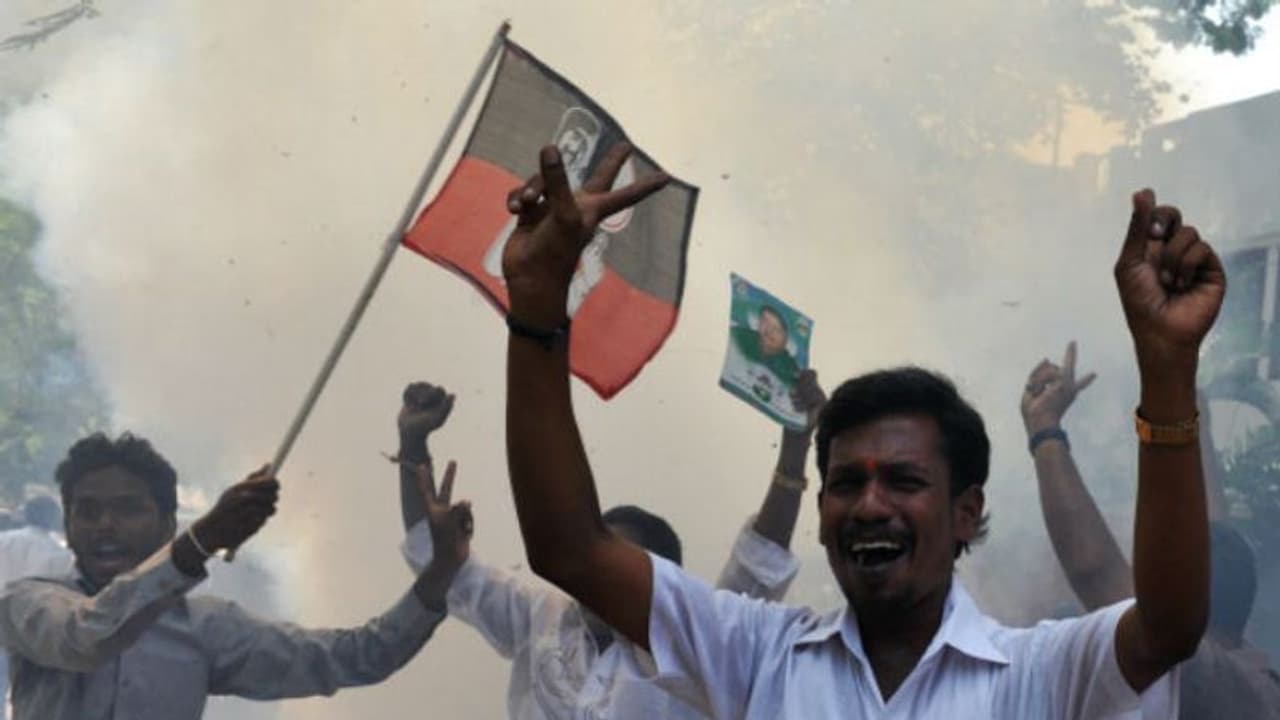Both the DMK and AIADMK have been arguing that their prime focus is state politics, and hence have ceded place now so that they can strike a strong deal in time for the state elections
At the moment of writing, the DMDK is keeping the AIADMK-BJP-PMK alliance on tenterhooks. But regardless of whether the DMDK joins the NDA in Tamil Nadu or not, the fact of the matter is that this will be, in a long time, a general election where the AIADMK and DMK are contesting individually in around just half of the 40 seats (39 in Tamil Nadu and one in Pondicherry).
In a simple contrast, in the 2014 election, the AIADMK stood in 39 seats while the DMK tried its luck in 34 seats. That they now are looking to contest in around 20 seats each conveys a tale of the leadership vacuum in their parties, and by extension, the ability of smaller parties to wield more influence in the alliance group.
Of course, both the DMK and AIADMK have been arguing that their prime focus is state politics, and hence have ceded place now so that they can strike a strong deal in time for the state elections.
Also read: Why MK Stalin's leadership skills are under microscope
“We can’t speak for the other parties. But it is not uncommon for the DMK to take a backseat during the Parliamentary polls and let national parties, who have been our allies, to have a better chance of winning. This is all done in the spirit of teamwork,” says a DMK functionary.
His point is partly valid. In 1998, the DMK contested only in 17 Lok Sabha seats. In 1999, it was only 19 seats. In 2004, it was a historic low of 16 seats for the DMK.
“Then it was a case of clear strategy, and the then DMK chief M Karunanidhi plotted it smartly,” says K Vidyasagar, a political analyst. “But today, the DMK is certainly not in a position to call the shots in an alliance.”
Also read — Who gets DMDK: NDA, UPA or mahagathbandhan?
That it has had to share seats with the likes of the IJK, a political non-entity, and the MDMK, a thoroughly spent force, is reflective of the DMK’s slide, Vidyasagar says and adds, “If it is any consolation to the DMK, the AIADMK is in a deeper hole.”
Irrespective of what happens to the talks with the DMDK, the number of seats that the AIADMK will contest will be far lesser than it did in 2014.
“It is not just about the number of seats. It can be a matter of understanding. But the manner in which the smaller parties are able to exert pressure on the two main Dravidian parties is quite revealing,” says Muthukumar, a journalist.
“If Karunanidhi or Jayalalithaa had been around, these parties or their leaders would not have been so emboldened. That is the hard reality,” Muthukumar adds.
Aside from the leadership crisis, the two parties are also no longer able to retain their core voter base. “The popularity of the two parties have been shrinking perceptibly. That is because the two parties have not changed themselves much. Their ideology is stuck in a time warp,” says V Kalyani, an MBA student. “Do their politics cut any ice with the youth of the state? The answer to the question is an emphatic no,” she adds. “The thing that is worrying is that no party, national or state, seems to have anything that the youngsters would find interesting.”
The two Dravidian parties may have ruled the state between themselves for the past 50-odd years, but the Dravidian ideology has been watered down slowly but surely. So much so, the Dravidar Kazhagam, the parent party of the two, which is now set to see a change of guard at its top, has had to issue a 33-point manifesto reiterating the Dravidian ideology.
The main Dravidian plank of atheism, of course, never took roots in the state, which has temples, churches and mosques in every locality. But worse, the Dravidian ideology which claimed to fight caste differences, has not had any desired effect. Caste inequities and aggression against the Dalits continue to plague the state.
The caste groups that are historically against the Dalits and their emancipation are the ones wooed assiduously by the two main Dravidian parties for electoral gains. The DMK has allied with a Gounder outfit. The AIADMK has the Vanniyar-based PMK in its corner.
But this is not a new phenomenon. The two parties have always paid only lip service to the Dravidian ideology. But then, they had leaders who could capture the minds of the public either with their charisma or oratory. But today, they don’t possess that too. In the event, the political scene is splintered in the state, and that does not augur well as it leads to confusion and complexity.
“No leader in the DMK or the AIADMK inspires confidence for the future. And that is a tragedy for the parties as well as the state,” says Kalyani.
The views expressed in this article are personal and may not reflect the editorial position of MyNation
